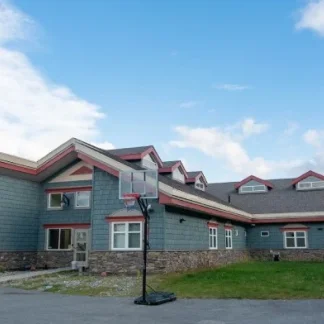Volunteers of America - ARCH
Anchorage, Alaska, 8012 stewart Mountain Drive, 99577
Available Programs
- Adolescence program
- Program for men
- Program for women
- Total beds : 24
- Young adult program
Insurance and Financial
- Medicaid
- Private insurance
- Self-pay options
- Financial aid
- Sliding scale payment assistance
About this Facility
Volunteers of America- ARCH is an alcohol and drug rehab service in Anchorage, Alaska that is designed to support individuals age 12 to 18. They offer residential treatment and partial hospitalization treatment, along with outpatient programming.
This program supports those with dual diagnosis or substance use disorder. Psychological testing, psychiatric services and counseling are provided. Clients will maintain their academic studies by participating in school on site. Nurse practitioners are available to support medical needs throughout the day and night. Clients focus on the benefits of individual therapy and group therapy, along with classes designed to cover a wide array of topics related to addiction and recovery.
This is a day treatment program where clients work on recovery skills designed to help them maintain a substance-free life. School is not interrupted as they are taught by teachers on-site to maintain their academic momentum. Clients focus on school relationships, family, and the community, along with the betterment of their mental health.
Contact us for more information: (907) 279-9636

Contact Volunteers of America - ARCH
Connect with Volunteers of America - ARCH by calling their admissions team directly.
(907) 279-9636 Website Get Directions